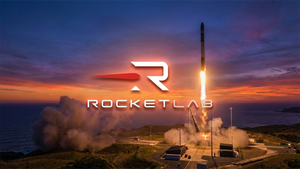Financial News
Power of 9: India
SOURCE: Qualcomm
DESCRIPTION:
The StoveTrace program demonstrates how mobile networks can aid in advancing the economic, health and environmental objectives of individuals and communities. StoveTrace provides an affordable, reliable, mobile-phone-based monitoring device to enable widespread participation in a voluntary carbon market when individuals use clean cookstoves instead of traditional biomass burning cookstoves.
Challenge
- Nearly three billion people, about 40 percent of the world’s population, depend on traditional cookstoves that use fuels like firewood, cow dung and crop residues for their cooking needs.1
- The Global Burden of Disease Study 2010 estimates that four million people die each year as a result of inhaling the smoke and soot produced by cooking over traditional cookstoves.2
- Switching to clean cookstoves can reduce the amount of firewood used for cooking, as well as the amount of smoke produced indoors and outdoors, reducing pollution and improving health for the women and children who are most exposed to the smoke.
- Unfortunately not all clean cookstoves perform well in the field. Advanced clean biomassburning cookstoves still burn locally available biomass, but dramatically and measurably reduce harmful emissions.
- At a cost of approximately 2700-6500 Indian rupees (US $42-$100) each, advanced clean cookstoves are currently unaffordable for the estimated two billion people worldwide living on less than US $3 per day.
- Registered carbon credit programs are beginning to provide financial incentives for reducing carbon emissions through the use of clean cookstoves. However, it is difficult and expensive to verify that these stoves are being used and measure the reduction in carbon emissions that results from use of clean cookstoves, making it a challenge to apply carbon credits for improved cooking technologies.
Solution
- To address this challenge of accurately and affordably verifying the use of a clean cookstove, StoveTrace, a state-of-the-art mobile-phonebased temperature sensing application, has been developed.
- StoveTrace was created to support Project Surya, an international collaboration between the University of California, The Energy and Resources Institute (TERI) and Nexleaf Analytics. Project Surya is an initiative focused on mitigating climate change by integrating clean cooking technologies with innovative sensing and climate financing for reduction of carbon dioxide and black carbon.
- The StoveTrace system includes a mobile-phone-based temperature sensing application, a thermal sensor that connects to the mobile device and a web-based analytics dashboard. Each time the clean cookstove is fired up, the StoveTrace senses the cooking event via the temperature probe and stores and uploads cooking event data.
- The temperature data is wirelessly uploaded from the mobile phone to a central server via a wireless broadband network.
- The data collected includes the number of times a stove is used and the duration of each use, enabling remote verification of stove usage. This data can be used by carbon market investors as verification of reduction in carbon emissions.
- A web-based dashboard has been developed which shows the number of times the stove has been lit and duration of cooking.
- Vodafone mPesa enables remittance of the carbon market payments directly to the clean cookstove users.
Impact
- Accurate Tracking: StoveTrace sensors have been determined to be the most accurate in tracking cookstove usage and more reliable than other methods like selfreporting and data loggers.
- Over 140,000 Hours Logged: StoveTrace has been tested and validated in field settings involving more than 700 households in rural villages in Uttar Pradesh and Orissa, India. Participating families have logged over 140,000 cooking hours on clean cookstoves, saving 530 combined tons of carbon dioxide and black carbon.
- Insightful Data: Continuous monitoring of clean cookstoves through StoveTrace improves understanding of cookstove usage and reveals insights to drive behavior change for increased adoption of clean cooking technology without using tedious and unreliable surveys.
- Less Downtime: StoveTrace data has also enabled clean cookstove implementers (including NGOs, manufacturers and entrepreneurs) to detect mechanical breakdowns, allowing implementation teams to quickly repair the stoves resulting in resumed usage by the families.
- Micro-payments: Stove users have been rewarded thus far with a combined total of nearly US $1500 in micro-payments, commensurate with hours of usage, paid directly to their bank accounts. Additionally, remittance of carbon credits to families based on clean cookstove usage has led to increased clean cookstove usage among families.
- Successful Collaboration: The Gold Standard Foundation, Nexleaf Analytics, and the University of California San Diego among other experts in climate and development, have collaborated in launching a pioneering methodology for quantifying and monitoring emissions from black carbon and other short-lived climate pollutants which will drive finance into projects that provide an immediate and measurable impact on mitigating climate change at a local level
1 http://cleancookstoves.org/resources/reports/fiveyears.html
2 Lim S.S. et al., 2012, A comparative risk assessment of burden of disease and injury attributable to 67 risk factors and risk factor clusters in 21 regions, 1990-2010: a systematic analysis for the Global Burden of Disease Study 2010, Lancet, 380: 2224-60.
KEYWORDS: Qualcomm, NASDAQ: QCOM, StoveTrace, India
More News
View More




Recent Quotes
View MoreQuotes delayed at least 20 minutes.
By accessing this page, you agree to the Privacy Policy and Terms Of Service.



